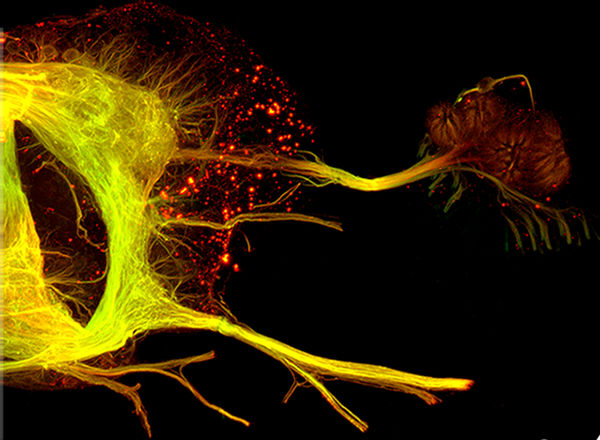Keshava Mysore has been selected for a Postdoctoral Travel Award from the Society for Developmental Biology (SBD). He will present his paper, role of semaphorin-1a in the developing visual system of the disease vector mosquito Aedes aegypti, at the 73rd Annual Meeting at the University of Washington in Seattle, WA, in July.

Mysore, a postdoctoral scholar in the laboratory of Molly Duman Scheel, Associate Professor of Medical and Molecular Genetics at the Indiana University School of Medicine, Adjunct Associate Professor, Department of Biological Sciences at Notre Dame, and an active member of the Eck Institute for Global Health (EIGH), will present his data on developing Aedes aegypti visual systems. The study is in collaboration with the laboratories of Professor David Severson, Director of the Eck Institute for Global Health, and Professor Joseph O'Tousa, also a member of the EIGH.
“Keshava is an exceptional researcher and it is wonderful to have his work validated and recognized this way,” states Duman Scheel. “Our ongoing collaboration with the Severson lab has allowed us to pursue analysis of mosquito neurodevelopmental genetics. Keshava’s work with doctoral student Matthew Leming from the O’Tousa lab has allowed us to incorporate neurophysiological and behavioral assays into our mosquito research program.”
In recent years, the O’Tousa lab, which is investigates how rhodopsin expression specifies the neurobiology of invertebrates, expanded their visual research program to include disease vector mosquitoes.
The Eck Institute for Global Health is a university-wide enterprise that recognizes health as a fundamental human right and endeavors to promote research, training, and service to advance health standards for all people, especially people in low and middle-income countries, who are disproportionately impacted by preventable diseases.